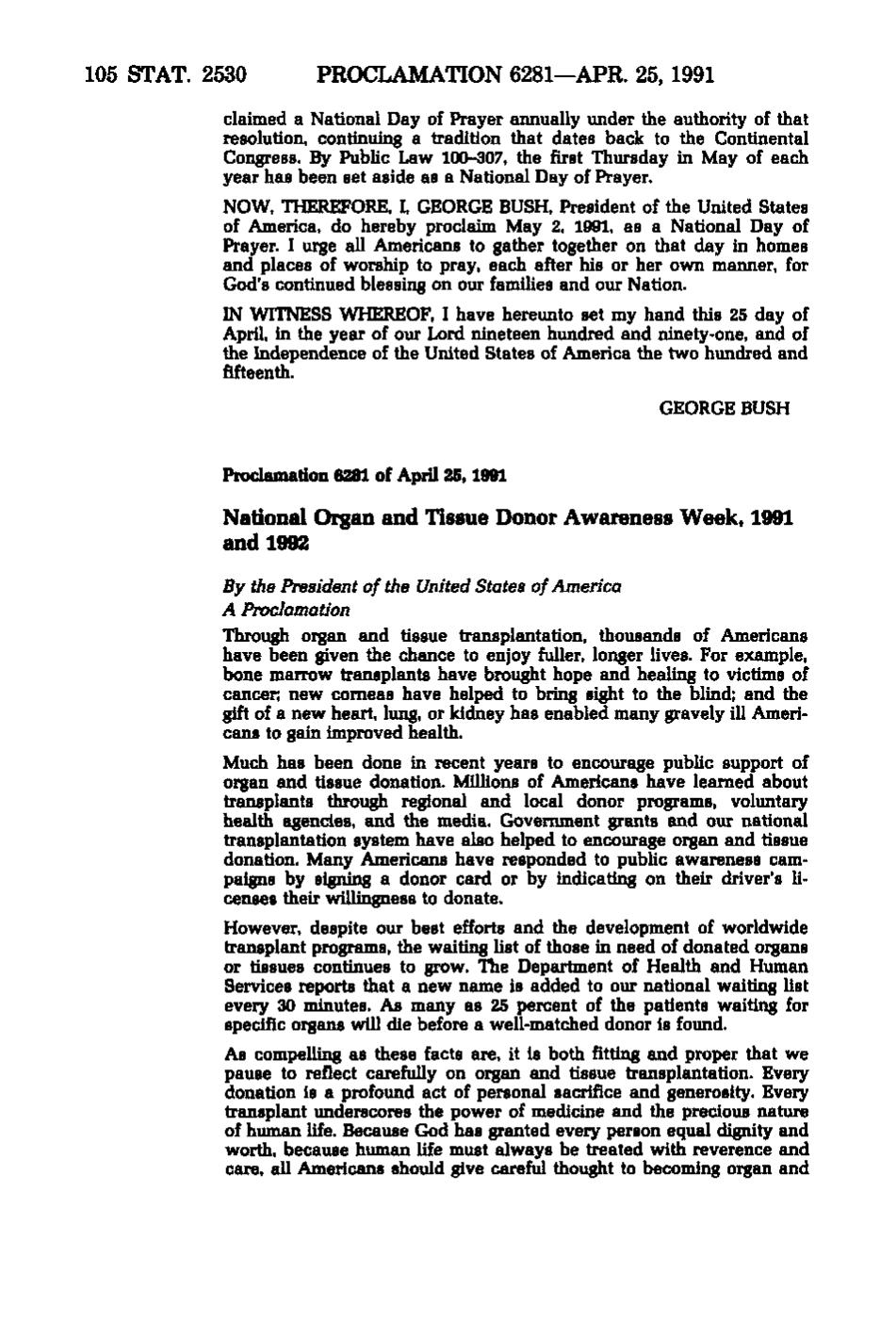105 STAT. 2530 PROCLAMATION 6281—APR. 25, 1991 claimed a National Day of Prayer annually under the authority of that resolution, continuing a tradition that dates back to the Continental Congress. By Public Law 100-307, the first Thursday in May of each year has been set aside as a National Day of Prayer. NOW, THEREFORE, I, GEORGE BUSH, President of the United States of America, do hereby proclaim May 2, 1991, as a National Day of Prayer. I urge all Americans to gather together on that day in homes and places of worship to pray, each after his or her own manner, for God's continued blessing on our families and our Nation. IN WITNESS WHEREOF, I have hereunto set my hand this 25 day of April, in the year of our Lord nineteen hundred and ninety-one, and of the Independence of the United States of America the two hundred and fifteenth. GEORGE BUSH Proclamation 6281 of April 25, 1991 National Organ and Tissue Donor Awareness Week, 1991 and 1992 By the President of the United States of America A Proclamation Through organ and tissue transplantation, thousands of Americans have been given the chance to enjoy fuller, longer lives. For example, bone marrow transplants have brought hope and healing to victims of cancer; new corneas have helped to bring sight to the blind; and the gift of a new heart, lung, or kidney has enabled many gravely ill Americans to gain improved health. Much has been done in recent years to encourage public support of organ and tissue donation. Millions of Americans have learned about transplants through regional and local donor programs, voluntary health agencies, and the media. Government grants and our national transplantation system have also helped to encourage organ and tissue donation. Many Americans have responded to public awareness campaigns by signing a donor card or by indicating on their driver's U- censes their willingness to donate. However, despite our best efforts and the development of worldwide transplant programs, the waiting list of those in need of donated organs or tissues continues to grow. The Department of Health and Human Services reports that a new name is added to our national waiting list every 30 minutes. As many as 25 percent of the patients waiting for specific organs will die before a well-matched donor is found. As compelling as these facts are, it is both fitting and proper that we pause to reflect carefully on organ and tissue transplantation. Every donation is a profound act of personal sacrifice and generosity. Every transplant underscores the power of medicine and the precious nature of human life. Because God has granted every person equal dignity and worth, because human life must always be treated with reverence and care, all Americans should give careful thoiight to becoming organ and
�
